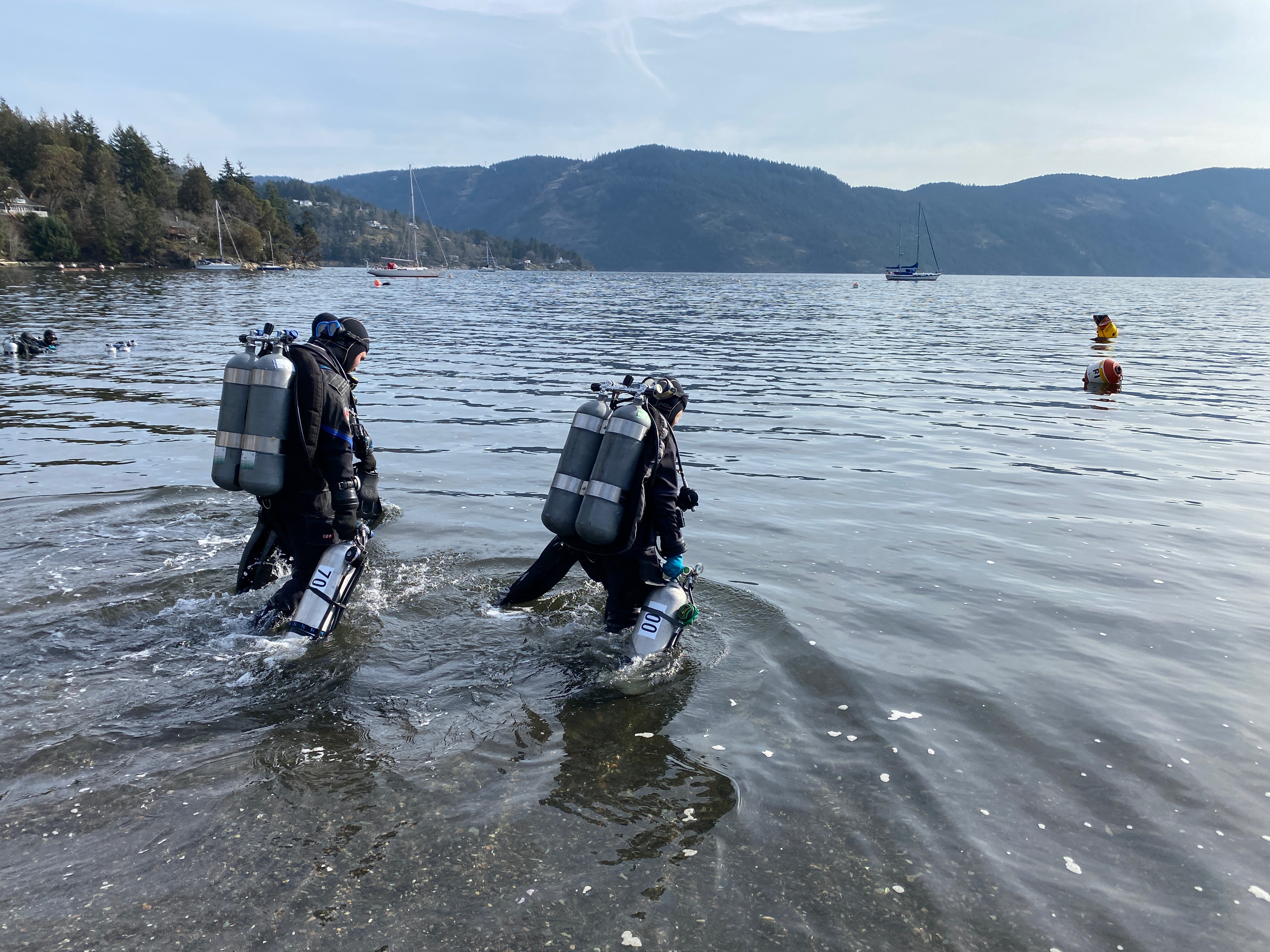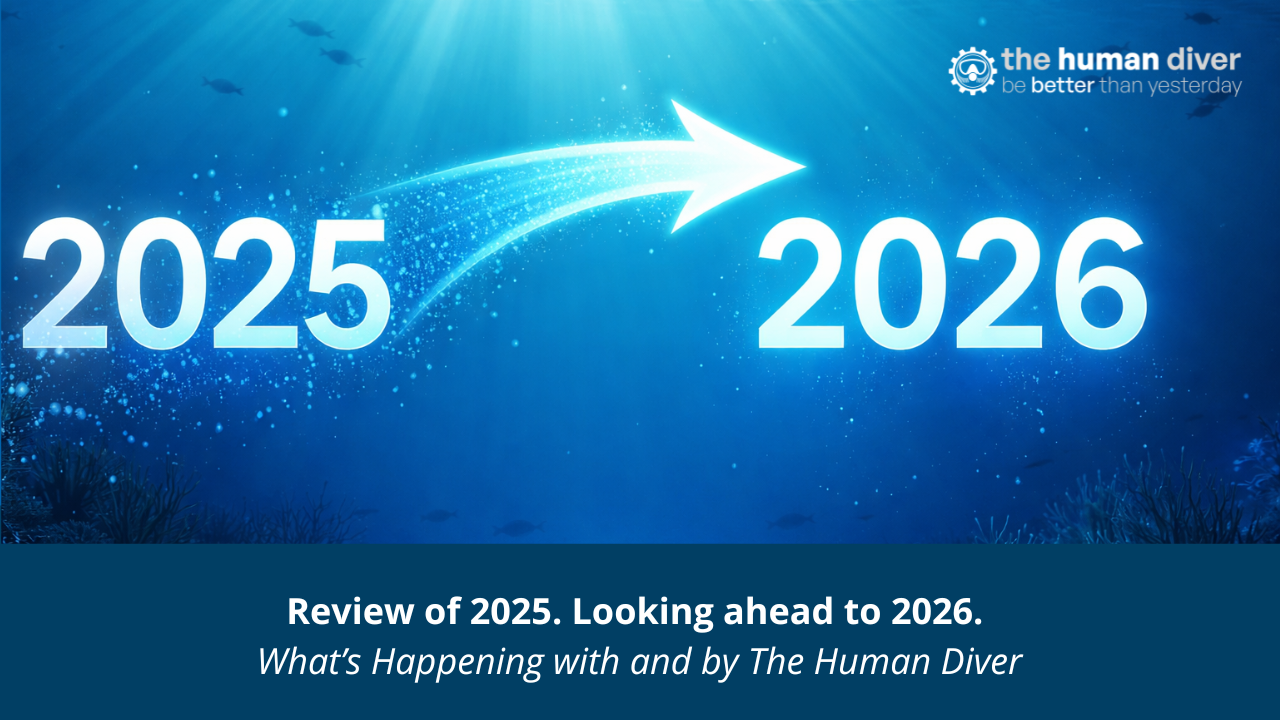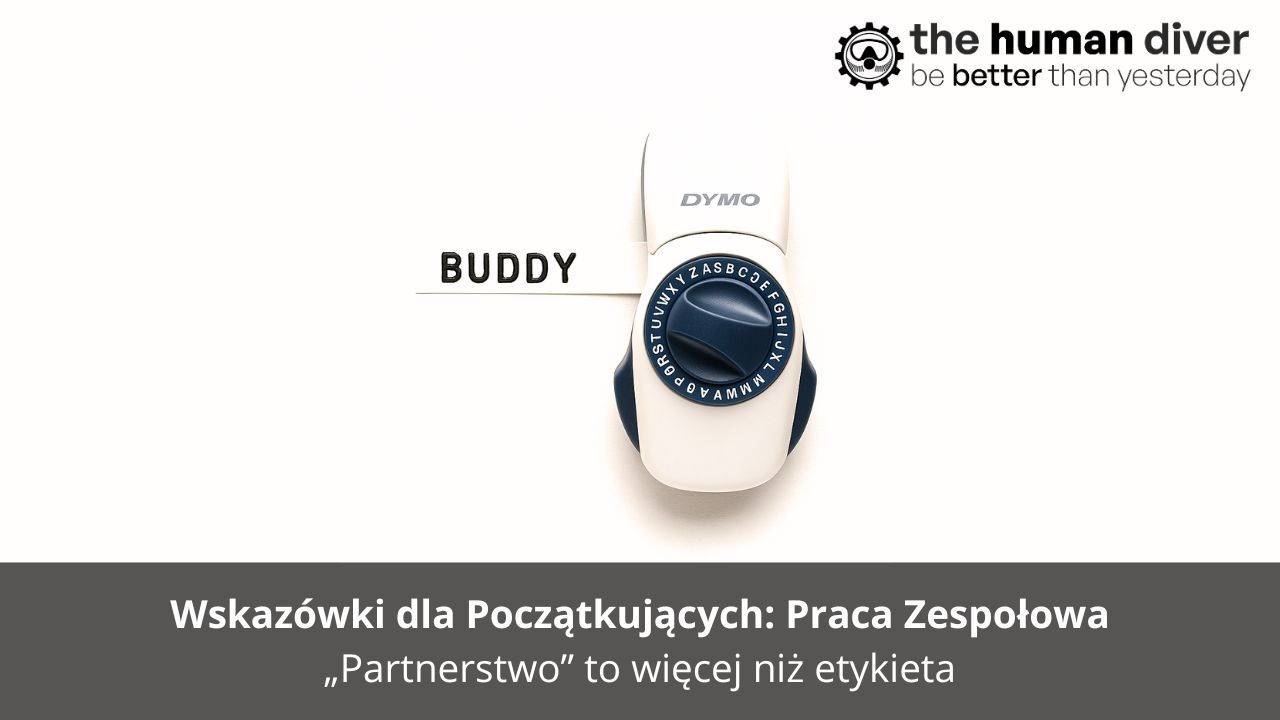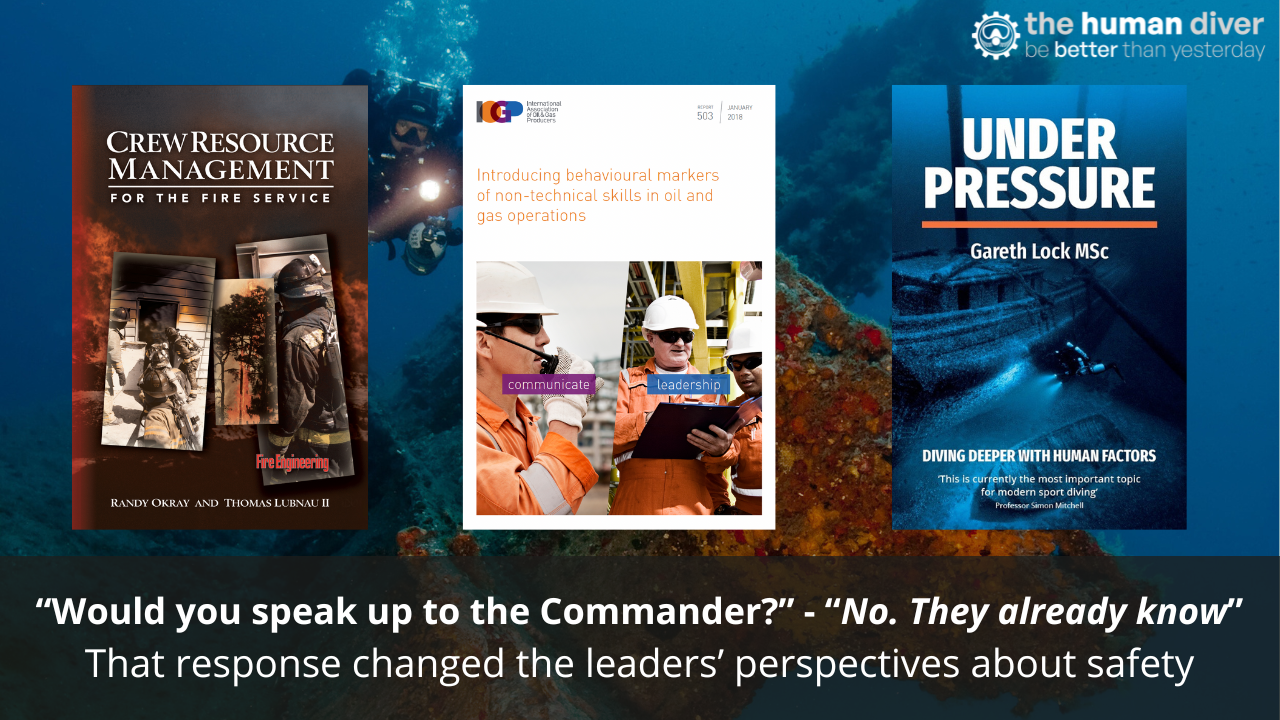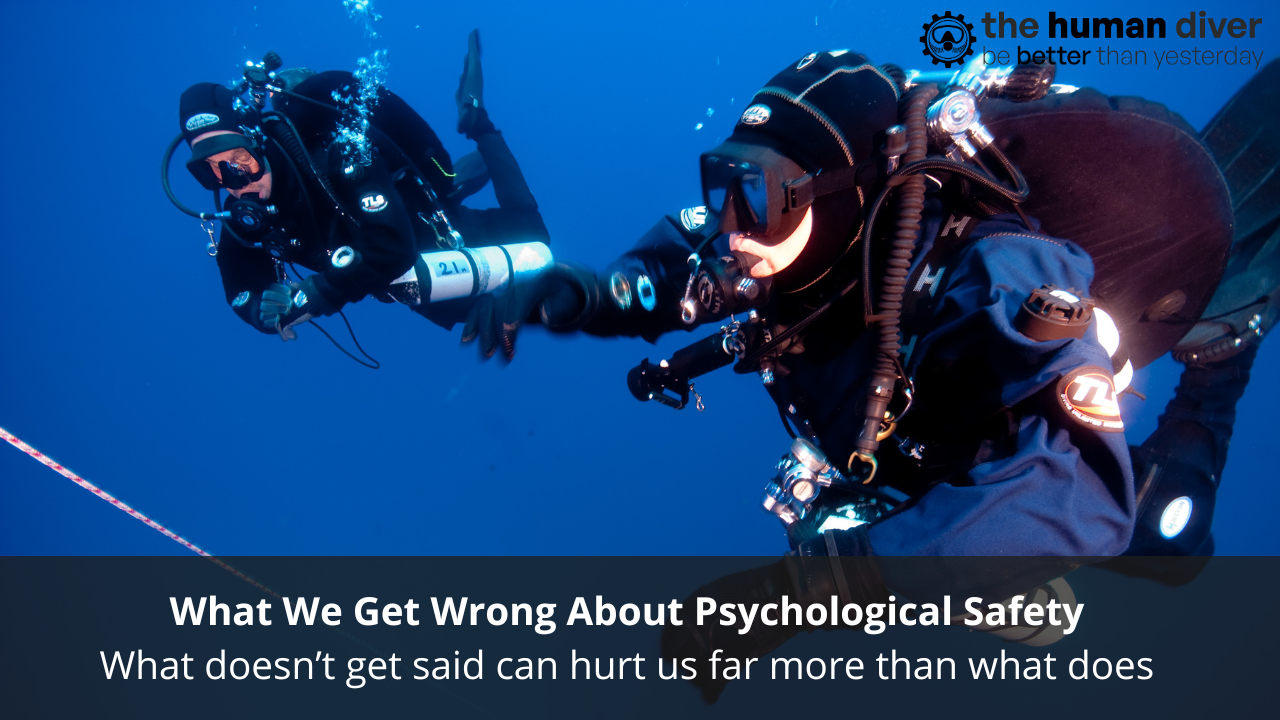
What We Get Wrong About Psychological Safety in Diving
May 11, 2025Psychological safety appears to have become a buzzword in diving, cropping up in social media, team debriefs, and conversations around leadership and performance. That is encouraging and great to see, because changing the language can change the world. However, popularity also breeds assumptions, and unfortunately, some of those assumptions are wrong. To correct false assumptions is important because when the margins for error are narrow and the stakes are high, like in sports diving, misunderstanding psychological safety can be dangerous. You only need to look at the ‘If Only…’ documentary and the YouTube presentation on the Linnea Mills case to see how wrong it can go.
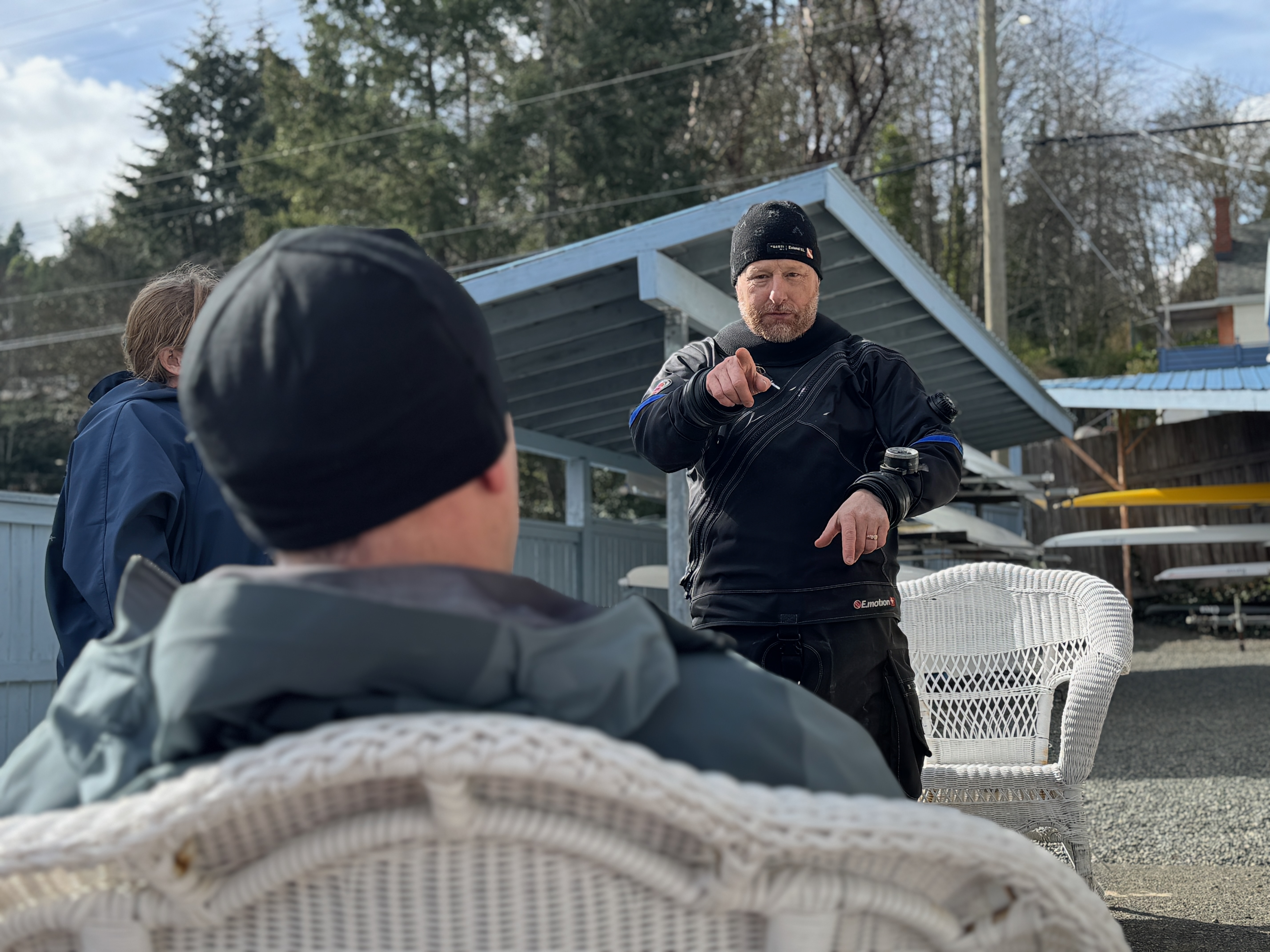
It's not about being nice
To be clear, psychological safety isn’t about making everyone feel comfortable all the time. It’s not about being nice. It’s not about everyone agreeing or always being supportive in terms of platitudes. It’s not about avoiding mistakes, and it certainly isn’t about guaranteeing outcomes. Psychological safety is about creating an environment in which interpersonal risk-taking is not punished, and in many cases, is actually rewarded. It is where people feel they can speak up with questions, concerns, or mistakes without fear of humiliation, blame, or social rejection. Note, this isn’t just about peer-to-peer within a dive team, or student to instructor in a training setting, it is also top down in an organisational or team setting.
Too often, I’ve seen teams equate a lack of conflict with safety. They say, “We all get along—we must be psychologically safe.” But silence does not equal safety. It often means people are holding back. They’re unsure if their voice will be heard or, worse, punished. And when learning and adaptation are essential, whether on a dive or in training, silence is the enemy of progress. Conflict can be a good thing because we don’t have to agree! However, we should be looking to close a gap in understanding, not create an adversarial approach,
Where it becomes even more dangerous is where people start weaponising the term, where a dissenting opinion during a planning session leads to an accusation of creating an unsafe environment. Psychological safety doesn’t mean you always get your way. It means your contribution is welcomed, not necessarily adopted. It’s not a veto card for discomfort. This nuance can be hard to get across sometimes within a team, especially if the leader doesn’t feel the environment is safe for them to challenge the status quo too.
They should be held accountable
We often want to hold divers or instructors accountable for their actions and decisions. As such, there is a perception or belief that psychological safety conflicts with high standards, which means we’re too kind on students, instructors or team members, and we won’t hold people to account. But research and practice tell us otherwise. High-performing teams are those that can balance accountability and psychological safety – they can be challenging and caring (see Kim Scott’s Radical Candour for more on this). Those teams make space for feedback, reflection, and hard truths because they are committed to learning and excellence – they want to be better than yesterday. They know that hiding information or avoiding difficult conversations doesn’t make the team stronger—it just delays the inevitable failure or compromises the expected standards or values.
And perhaps most crucially, psychological safety isn’t something you can declare or legislate – you can’t write a team or organisational policy that says you’re psychologically-safe. You don’t get it by adding it to a slide deck or saying, “We’re a safe team.” You earn it in small steps, interaction by interaction, through consistent curiosity, transparency, and empathy. It is the small behaviours that matter: listening without interrupting, asking “What did I miss?”, owning your own mistakes first, and saying “thank you” when someone raises a concern. It is about walking the talk. And it can be lost in an instant if something is said that isn’t corrected, challenged or addressed there and then.
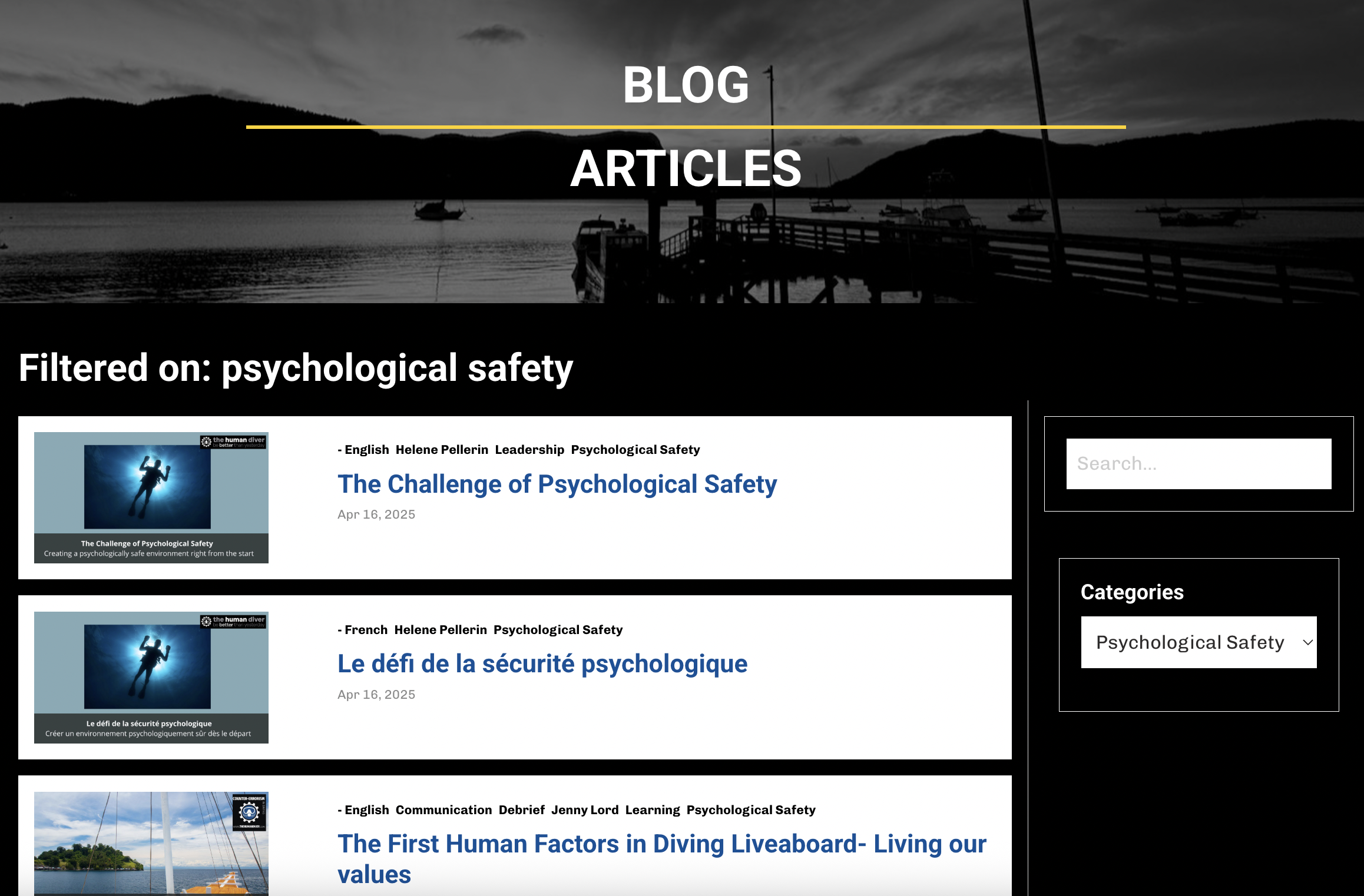
Although many of the blogs within the Human Diver have emphasised the importance of ‘leaders’ (instructors, agency staff, DMs, skippers, experienced individuals etc), creating and maintaining psychological safety isn’t just the job of the instructor or dive leader. While leadership certainly matters, psychological safety is co-created. Everyone plays a role. Whether you’re a novice diver on a course, an experienced technical diver, or a dive centre manager, you influence the climate with every interaction.
Here's an example of a case study that brings this to life. I am sure that many of the readers have experienced something similar.
Case Study: An Incorrect Gas Switch and the Power of Speaking Up
During a normoxic trimix course, a student diver was carrying out a simulated ascent after completing a skills circuit at 45m/150ft. The team had executed the bottom phase well, and everything appeared to be running smoothly. At 21m/70ft, the instructor gave the signal to switch gases. The student acknowledged. Unclipped their stage regulator and began the sequence.
Except he didn't check his depth before breathing the regulator.
Whether through task fixation, stress, or simply forgetting, he never checked the depth against the MOD of the gas and started breathing the regulator. The instructor noticed the oversight but chose not to intervene immediately as they had watched the diver analyse their gas on the surface, could trace the hose, and knew what depth they were at. They could fail safely. The instructor also assumed the student and/or team would catch the error.
He didn’t. They didn’t.
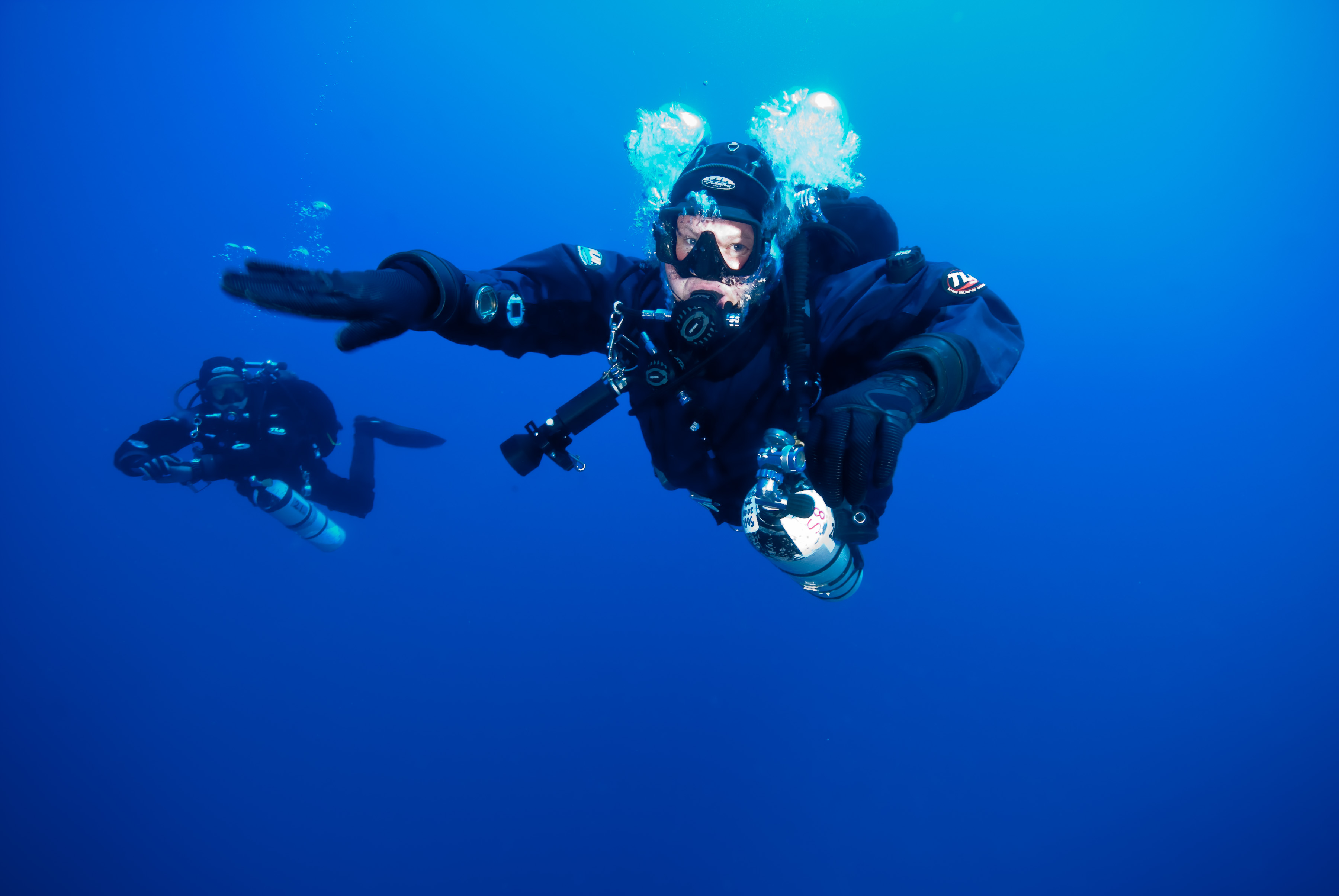
Disovering the gaps in the debrief
It wasn’t until the debrief that the mistake was highlighted. The student was initially defensive: “I’m sure I checked.” But when shown the video footage, the reality became clear. What followed, though, was the more important part: the team explored why it hadn’t been caught, by the student, by the instructor, and by the others in the team.
One teammate admitted, “I saw he didn’t check, but I didn’t want to interfere with the instructor’s flow.” Another said, “I wasn’t sure if I was mistaken and didn’t want to look foolish.”
Outcomes are a function of technical skills, context, skill/luck, and non-technical skills. The dive team had the technical skill. They had the experience. But they didn’t have psychological safety, which sits in both context and non-technical skills in the frameworks we use.
The social environment didn’t support speaking up in the moment, even when something seemed off. The interpersonal risk—the fear of embarrassment or ‘stepping out of line’ - outweighed the perceived risk of the diver switching to a wrong gas.
That debrief changed everything.
The instructor owned his own assumptions and made it explicitly clear: “I want you to speak up. If you see something wrong, even if you think I’ve got it, say it. We all benefit when we bring awareness to what’s going on. One of the most important behaviours within a team is mutual accountability.”
After this event, the team’s communication became sharper. More frank. More challenging. They asked questions they might have previously held back on. They raised uncertainties or concerns. And yes, it was uncomfortable at times—but it was safer. That discomfort was the price of learning.
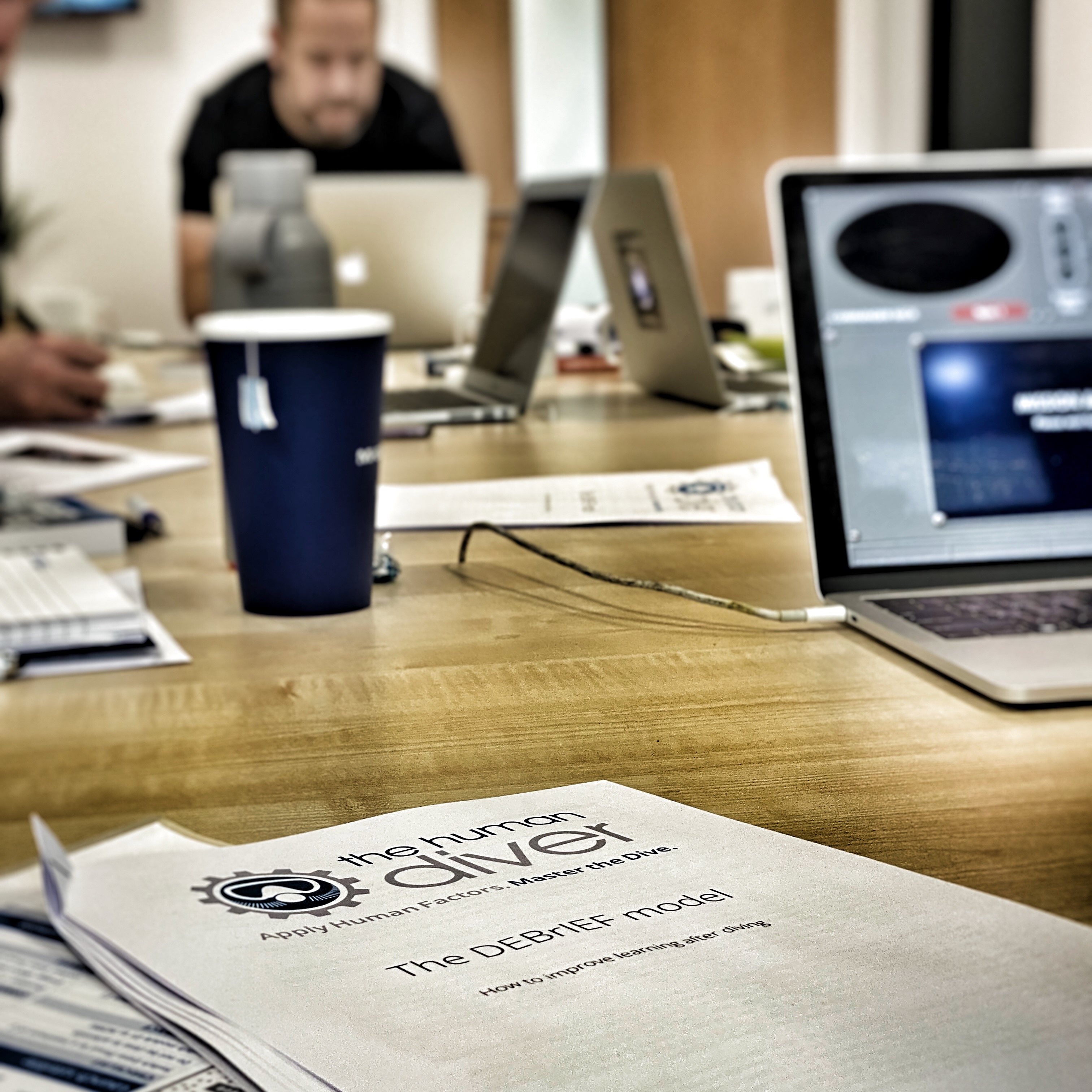
In the HFiD: Applied Skills classroom
The above diving example has been replicated many times in the classroom using the Interpersonal Skills LAB. During the debriefs, the gaps in psychological safety are identified. And the best part, because there is no professional jeopardy as this is just flying a prototype spacecraft, and the debriefs focus on behaviours and not personalities, the learning is massively accelerated. This attitude then flows out into the dive teams because the graduates know
- How to raise concerns,
- How to debrief,
- How to create and maintain psychological safety in a team.
And I know I have personally learned and developed from challenges within the Human Diver team. It isn’t easy being a leader and being challenged, but as I keep saying, “None of us is as wise as all of us together and I don’t have all the answers or the ideas.” and when the challenges come in, I publicly thank the challenger.
Takeaway – PS is a critical team skill
Psychological safety isn’t a soft skill. It’s a critical team skill, especially in uncertain, complex, and high-risk environments like diving. It’s not about avoiding hard conversations - it’s about having them. It’s not about lowering standards - it’s about enabling critical and challenging feedback so standards can be met and exceeded.
If we want to build safer, more effective dive teams who want to enhance their performance, we must move beyond the surface-level understanding of psychological safety and get to the heart of what it really means:
- Creating a culture where candour is welcomed,
- Critical feedback based on behaviours and performance is normalised, and
- Learning is the norm, not the exception.
Because what doesn’t get said can hurt us far more than what does.
This article was written based on an HBR article by Professor Amy Edmondson & Michaela Kerrissey, "What People Get Wrong About Psychological Safety" (Harvard Business Review, May–June 2025)
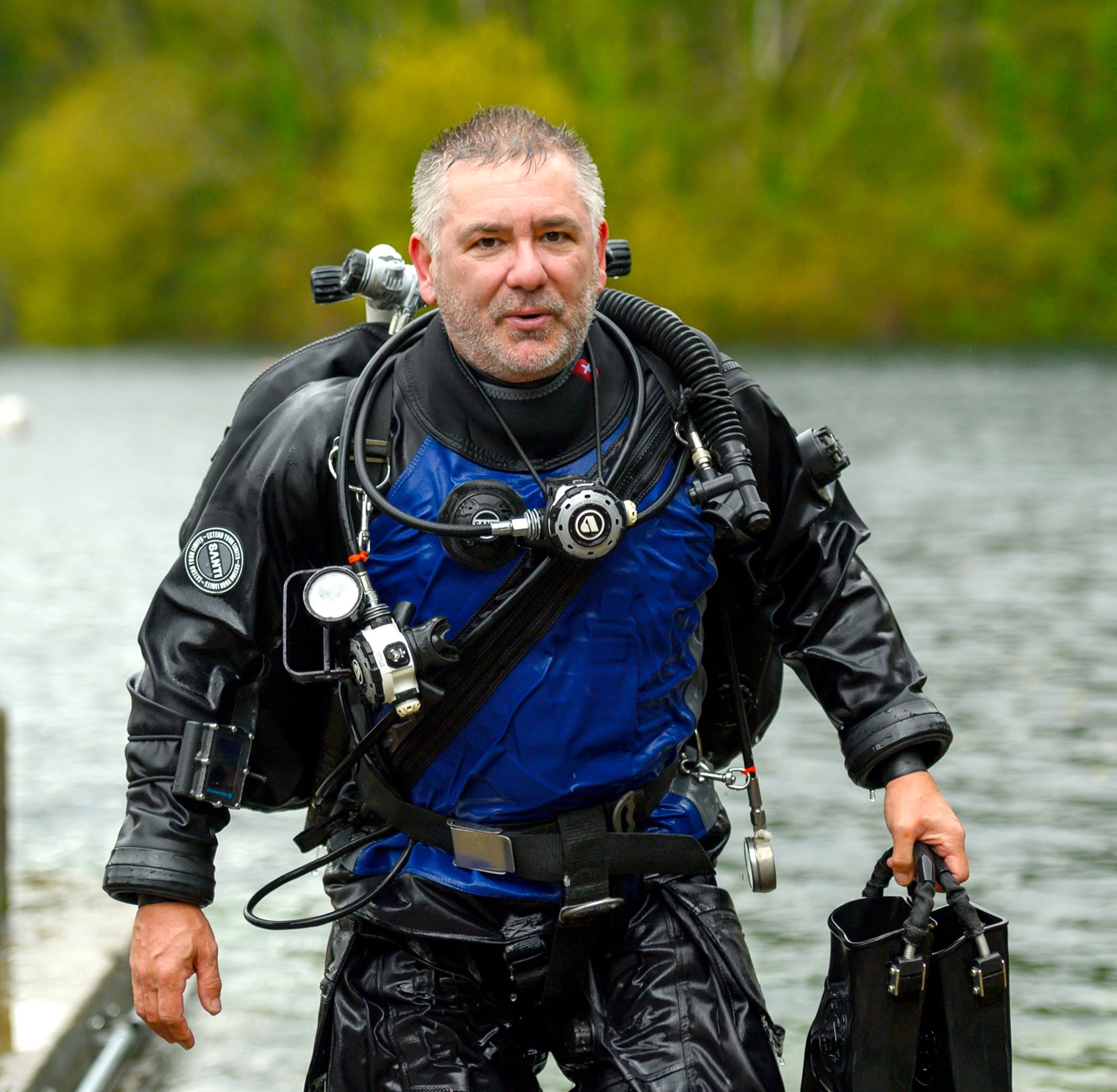
Gareth Lock is the owner of The Human Diver. Along with 12 other instructors, Gareth helps divers and teams improve safety and performance by bringing human factors and just culture into daily practice, so they can be better than yesterday. Through award-winning online and classroom-based learning programmes, we transform how people learn from mistakes, and how they lead, follow and communicate while under pressure. We’ve trained more than 600 people face-to-face and 2500+ online across the globe, and started a movement that encourages curiosity and learning, not judgment and blame.
If you'd like to deepen your diving experience, consider the first step in developing your knowledge and awareness by taking the Essentials of HF for Divers here website. If you're curious and want to get the weekly newsletter, you can sign up here and select 'Newsletter' from the options
Want to learn more about this article or have questions? Contact us.

